Shannon Odell: How does alcohol cause blackouts?
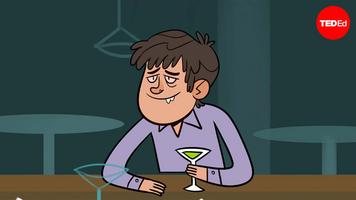
Alcohol has been shown to have strange and selective effects on the brain. Many intoxicated people can perform complex tasks like holding a detailed conversation or navigating a walk home. Yet for those experiencing a blackout, the memory of these events is quickly forgotten. So, how does alcohol cause these memory lapses? Shannon Odell explores...
Shannon Odell: What's happening to Earth's core?

A hydrogen atom is traveling high within the outermost layer of Earth's atmosphere. This particular atom first entered the exosphere millions of years ago, but today it overcomes Earth's gravitational pull and escapes, joining the roughly 90 tons of material that leak out of our atmosphere each day. Should we be worried about these leaks? Shanno...
Shannon Odell: What Earth in 2050 could look like
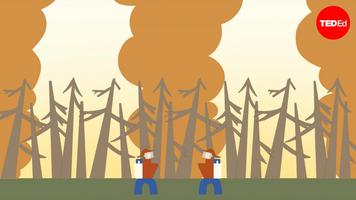
While we’re already feeling the devastating effects of human-caused climate change, governments continue to fall short on making and executing emissions pledges that would help thwart further warming. So, what will our world look like in the next 30 to 80 years, if we continue on the current path? Shannon Odell offers a glimpse at Earth's possib...
Shannon Odell: The science of falling in love

Love is often described as heartwarming, heart-wrenching, or even heartbreaking— and your brain is responsible for all these feelings. The journey from first spark to the last tear is guided by a symphony of neurochemicals and brain systems. Shannon Odell explores what happens in your brain when you fall in love, how it responds to a relationshi...
Shannon Odell: This is what happens when you hit the gas

In 2015, two men drove a Volkswagen across the US on just over 100 gallons of fuel. Their 81-mile-per-gallon performance doubled the car's estimated fuel rating, and set the record for the lowest fuel consumption ride of a diesel car. The duo were experts in techniques that maximize fuel efficiency. So, how did their strategy save fuel? Shannon ...
Shannon Odell: What's the smartest age?
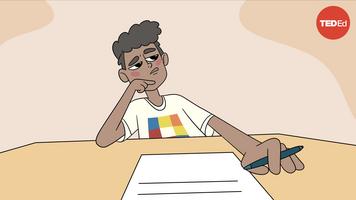
Tomorrow is the annual Brain Clash — a decathlon of mental challenges, trivia competitions, and puzzles. Amir needs a smart and capable teammate and must choose between three people; all of different ages and talents. So, who should Amir choose for the contest? Shannon Odell breaks down the idea of "smart" and explores how our brain development ...
Shannon Odell: The most dangerous elements on the periodic table
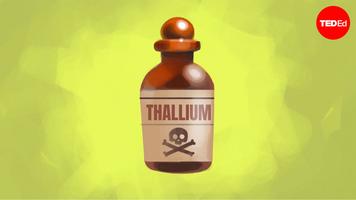
Within the periodic table loom many potential hazardous elements. Some elements are dangerous due to their toxicity. Others are dangerous because of how they respond, react, or even explode in the outside environment. And perhaps the most threatening elements are those that silently emit energy. So, which substances on the periodic table are the...
Shannon Odell: Why are scientists shooting mushrooms into space?

Astronauts aboard the space station Mir made a frightening discovery: several species of Earth-derived fungi were found growing throughout the shuttle, blanketing air conditioners and corroding control panels, putting both the station’s integrity and their lives at risk. How had the fungi survived the journey to space? Shannon Odell shares why f...
Shannon Odell: The rights you might not realize you have

Since 2015, an unprecedented movement has been sweeping courts around the world. Groups of young plaintiffs are suing their governments for their inaction on tackling climate change. These suits argue that climate inaction violates their basic human rights. But what do human rights have to do with the environment? Shannon Odell examines our righ...
Shannon Odell: Do you really need to take 10,000 steps a day?
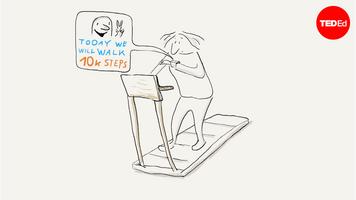
For years, Jean Béliveau walked from country to country, with the goal of circumnavigating the globe on foot. While few people have the time or desire to walk such extreme lengths, research shows that adding even a modest amount of walking to your daily routine can dramatically improve your health. So, what exactly happens to your body when you ...
Shannon Odell: Should you switch to solar?

Today in many countries solar is the cheapest form of energy to produce. Millions of homes are equipped with rooftop solar, with most units paying for themselves in their first seven to 12 years and then generating further savings. So, how much money can you save by switching to solar? Shannon Odell shares how solar units could help pave the way...
Shannon Odell: The clever trick used by sports betting apps

Sports gambling has become more popular than ever. Mobile apps make it easier to place bets anywhere or anytime, especially for young people who make up the fastest-growing demographic. And the sports betting apps work just like the games in a casino— built to ensure that the house always wins. So, what exactly are the tricks these apps use? Sha...
Shannon Odell: Confused about recycling? It’s not your fault

If you've ever looked at the bottom of a disposable bottle or cup, you've probably noticed a recycling symbol. Seeing this, many people assume the item should be put in a recycling bin. Yet many plastics are incapable of being recycled at most centers. In fact, only 9% is recycled each year. So why are so few plastics recycled? And what do these...
Shannon Odell: How friendship affects your brain

If it seems like friendships formed in adolescence are particularly special, that's because they are. Childhood, adolescent, and adult friendships all manifest differently in part because the brain works in different ways at those stages of life. During adolescence, there are changes in the way you value, understand, and connect to friends. Shan...
Shannon Odell: What sex ed doesn’t tell you about your brain

While we often talk about puberty's effect on the body, what gets overlooked are the fascinating changes that happen in the brain. Puberty, in fact, begins in the brain, and lasts as long as five years. And during this extended process, the brain undergoes its own transformation, thanks to estrogen and testosterone. Shannon Odell details what we...
Shannon Odell: Why you feel stuck — and how to get motivated
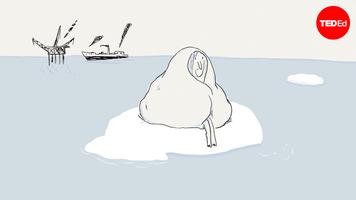
Many of us have experienced feeling stuck. People often report feeling highly motivated at the start and end of a project, but the middle can feel untethered. It can happen when tackling something as simple as a term paper or as monumental as social inequality or the climate crisis. So, are there ways to get unstuck? Shannon Odell digs into the ...
Shannon Odell: When are you actually an adult?

Most countries recognize 18 as the start of adulthood by granting various freedoms and privileges. Yet there's no exact age or moment in development that we can point to as having reached full maturity. If there's no consensus on exactly when we reach maturity, when do we actually become adults? Shannon Odell shares how scientists define adultho...
Shannon Odell: How to make your stress work for you

An upcoming project deadline, a fight with a family member, or even an embarrassing moment can easily trigger our body’s stress response. While we can’t always control what life throws at us, there are ways to better prepare for stressful events we may experience. So, how can we train our minds and bodies to manage our stress response? Shannon O...
TED-Ed: Why is it so hard to break a bad habit?

Many people deal with a nail-biting habit at some point in their lives. Some will go to great lengths to try to stop, employing strategies like dipping their hands in salt or wearing gloves. And while not all of us are nail-biters, most of us do have a habit we'd like to kick. So, what's the best way to break one? Explore how habits are formed, ...
TED-Ed: Is it normal to talk to yourself?
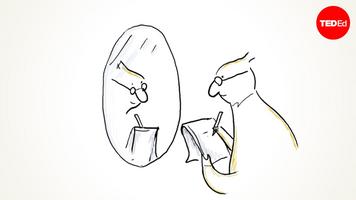
Being caught talking to yourself can feel embarrassing, and some people even stigmatize this behavior as a sign of mental instability. But decades of research show that talking to yourself is completely normal; most if not all of us engage in some form of self-talk every day. So why do we talk to ourselves? And does what we say matter? Dig into ...